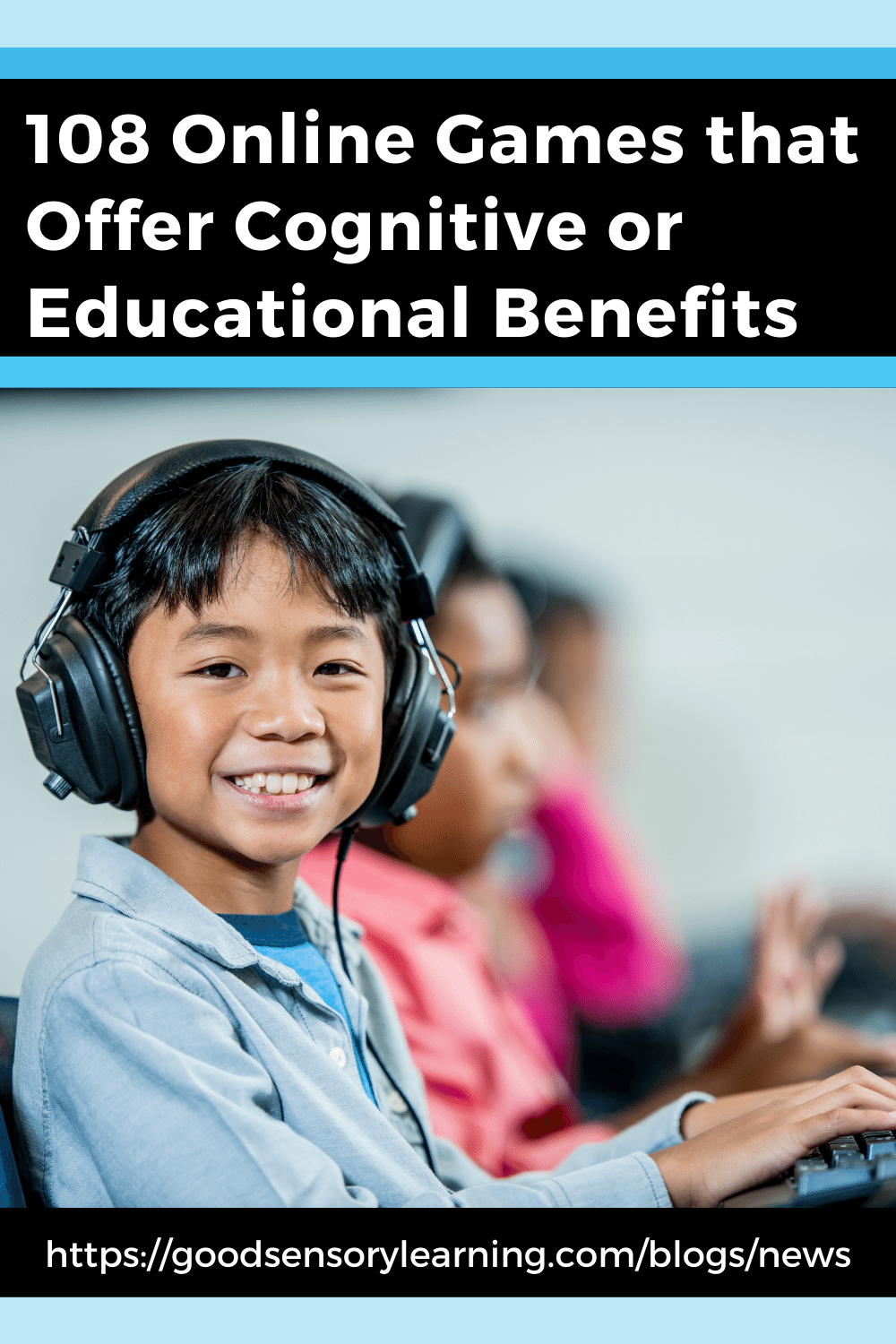108 Online Games that Offer Cognitive or Educational Benefits
Posted by Erica Warren on
Over the years, I have scoured the internet to find high-quality online games that not only entertain but also strengthen the brain, support cognitive growth, and help learners find joy in the process. As a learning specialist, educational therapist, and executive functioning coach, I know that when students are engaged in playful and meaningful activities, they are more motivated, focused, and receptive to learning. Educational games are one of my favorite tools because they blend fun with function, offering children and teens an opportunity to exercise their minds while enjoying themselves.

Why Online Games Can Be Powerful Learning Tools
Research shows that game-based learning can:
- Boost motivation by turning practice into play.
- Strengthen memory and attention through repetition, challenge, and problem-solving.
- Support executive functioning skills such as planning, sequencing, and self-monitoring.
- Provide multisensory learning by engaging visual, auditory, and kinesthetic pathways.
- Build confidence as students experience small wins and progress at their own pace.
When chosen carefully, online games can become valuable supplements to traditional instruction—helping students with diverse learning profiles access content in ways that work best for them.
Curated Categories of Brain-Boosting Games
To make these resources easier to navigate, I’ve organized the collection into categories. This way, teachers, tutors, therapists, and families can quickly find what they need based on the skills they want to strengthen:
- Cognitive Games: Puzzles, logic challenges, and memory-building activities.
- General Education: Games that reinforce broad academic skills across subjects.
- Writing & Language: Activities that improve vocabulary, grammar, and sentence structure.
- Social Studies & Science: Interactive simulations and quizzes that bring history and science to life.
- Spelling & Reading: Phonics-based practice, word recognition, and reading fluency games.
- Digital Storytelling: Tools that encourage creativity and narrative thinking.
- Math: From basic arithmetic to advanced problem-solving, math games make practice engaging.
- Typing & Keyboarding: Speed and accuracy games to improve digital literacy.
- Social Skills: Scenarios that help learners practice communication, empathy, and cooperation.
- Sequencing: Activities that strengthen logical thinking and step-by-step planning.
I’ve gathered and linked each of these resources on my practice website, where they’re ready to be explored by both educators and families.
So, I wanted to share this link with other teachers and families: CLICK HERE

How Teachers and Parents Can Use These Games
Here are a few practical ideas for integrating online games into learning routines:
- Warm-up activity: Begin a tutoring session, class, or homework block with a 5–10-minute game to activate the brain.
- Brain breaks: Use short games as a way to reset focus and reduce stress between tasks.
- Skill reinforcement: Assign specific games that align with current classroom content or individualized learning goals.
- Executive function training: Encourage learners to track their scores, set goals, and reflect on strategies used in the game.
- Family fun nights: Play together at home to normalize learning as a joyful, shared experience.
Other Online Games That Benefit the Brain
In addition to the curated list on my website, there are countless other digital tools worth exploring. I’ll continue to add to my collection, and I would love your input. If you have favorite online games that you’ve seen spark learning, engagement, or creativity, please share them with me.
By building this collection together, we can create a powerful community resource that supports learners of all ages.
Final Thoughts
Online educational games offer a unique opportunity to combine play with purpose. When students laugh, experiment, and persevere through challenges in a game setting, they are also strengthening critical cognitive and academic skills.
I hope you find this resource helpful, whether you’re a parent searching for meaningful screen time, a teacher looking for classroom tools, or a therapist seeking engaging interventions.
👉 Click here to explore the full collection of brain-boosting games.

I’d love to hear your thoughts! Which games do your students enjoy most? Are there hidden gems you think belong on this list? Share them with me—I’ll be happy to add them so that more teachers, parents, and learners can benefit.
- Blog: https://goodsensorylearning.com/blogs/news
- YouTube Channel: https://www.youtube.com/user/warrenerica1
- GSL Blog: https://goodsensorylearning.com/blogs/news
- Stores: www.GoodSensoryLearning.com/
- Courses: http://www.learningspecialistcourses.com/
- Newsletter Sign-up: https://good-sensory-learning.kit.com/drericawarren
Share this post
- 0 comment
- Tags: educational materials, games
